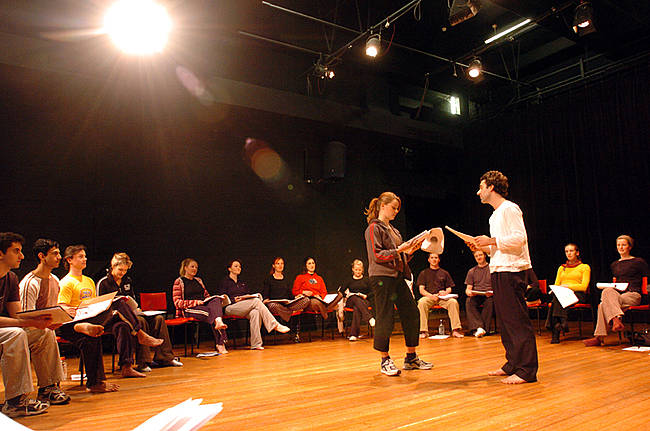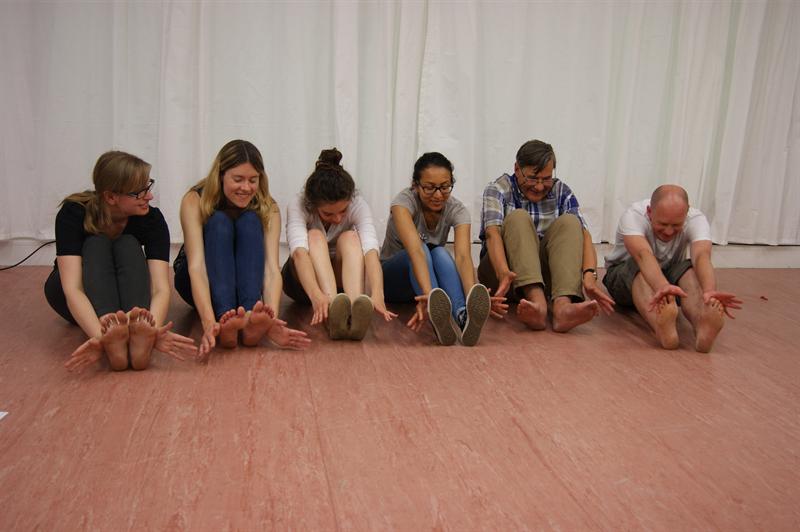Basic information useful when you are at the beginning of your career
If acting is what you intend to devote your life and activity to, then you need to start by creating a list of priorities in your learning. Right at the top of that list you need to consider acting lessons, regardless of your age or previous experience. Until you get to the point of perfecting your skills and partaking in auditions, getting cast in roles and building a career, you need to start with baby steps.

Nowadays, you don’t need to worry about attending pretentious schools right from the start. You might not even know if you truly like mastering this craft or if it suits you. If you’ve never done this before, the greatest option for you is to find online free acting lessons and start your plan from there. If you are at a more advanced level, you can opt for learning about not only the art of acting, but also the business revolving around it, tips about different acting techniques, advice on how to prepare your monologues, completing your character and finally: winning roles at auditions. Some online lessons offer you the options to submit your monologues for review and feedback. If you’re trying to start fixing some acts for your kids, you can search for classes for children near you or online.
Let’s take a look at your first steps in acting lessons.
- Pick a monologue. After you’ve become familiar with it, then you may begin to add techniques and practice. One of the first acting techniques you can study is Stanislavski, as it is considered to be at the core of all other modern acting techniques. Other recommended techniques are Method Acting Lessons, Meisner Online Acting Class, Stella Adler’s or Michael Chekhov’s Class. Go for something that enhances your best impersonation by choosing from patriotic speech, comedy, romantic or dramatic monologues.
- Work on parallel skills like imagination, creativity, improvisation. Consider trying out dancing, singing, combat fighting, whatever could add a differentiating point to your performance. You might already be a performer, perhaps a bohemian guitar player in a bar in NYC and actually play that role one day. The experience will help.
- Find what individualizes you and discover your type. Your acting lessons will be prolific if you position yourself in a certain role that you know would fit you best and focus on that.
- Study line memorizing. A useful insight is provided by Stella Adler, who recommends you avoid studying the words of automatic memorizing. Try seeing the action instead, for an example by paraphrasing each line and get to the meaning of every word in your own sense. Stella Adler calls this the actor’s inner justification. Other advice: write your lines down, read them out loud or record them and listen thoroughly.
- Preparing your first monologue. Start by reading the play or the script several times, two, three, six – the number is irrelevant, but you need to feel like you know it by heart. Best as can be, pick something you haven’t seen yet, in order to avoid being influenced by another actor’s work. Try to identify what the character’s motivations are, what stands in their way, how they are and what they want. If you want to have a sincere interpretation, you will need to personally experience your role and each and every line. Think about how acting monologues can reflect pivotal plot moments or character details and in the end ask yourself what would have been different if the monologue would be removed from the film or play. That is how you can answer to what your monologue accomplishes. Prep up by imagining similar situations you experienced personally and expand from the private context to embody the memory of the happening.
- Get feedback. Record yourself and ask around with kindness if professionals can guide you through. Don’t be shy, keep yourself open for critique and imagine any improvement is a step forward.
Among your next steps if you really want to consider acting would be to explore some guidance for acting auditions. Yes, besides fixing your resume and getting some headshots, you need to focus on entering the state of mind you need to represent your character in front of deciding people. Among masses of random aspiring actors, you need to distinguish yourself. Read about tips which can sustain a better performance and make the difference between skills you need to develop in order to nail film, theater or commercial auditions. When you feel you’re ready for a next step, get an acting reel.

If you experienced all these steps or if you already are an advanced actor, you can consider exploring lesser known acting techniques, try Shakespeare acting, study character development.
Acting lessons are complex and forge a lot of your energy and dedication. Crafting your skills will take most of your time, as will researching methods or deepening into a bit of context and history for a better knowing of your field. You need to fix your plan and stick to it. Acting might open up several professional perspectives for you and help you evolve personally as well, especially because it’s pretty much absorbing and challenging and cannot be regarded as a conventional job. Voice acting is a separate sub-domain you can try if you discover that theater or film acting do not actually suit you. Don’t let that ruin your plans. There are plenty of artists who are popular for incredible voice work in animation or fantasy films, and there are also good job opportunities involved in television and advertising if you decide to develop your voicing skills. Haven’t you always dreamed of getting paid for doing that alien voice?
Acting might also require you to move. Firstly, for school. You probably won’t find any spectacular acting schools in states like Nebraska or Kansas and cities like Houston, Atlanta or Boston aren’t known for brilliant classes. The effort is big, but relocating to New York, Los Angeles or at least Chicago or San Diego.
If you’re not sure about what you want to choose about an acting career, maybe a film class would suit you better, one that you could try out online for a small cost or even free. Famous movie stars like James Franco teach different courses, like screenwriting for short films.
Some might discourage you when you intend on taking acting lessons, arguing that studying to be an actor doesn’t actually help you gain any skills. Becoming an actor infuses you wholly into a great deal of personal development, which will and cannot probably be attained during preparation for no other profession. Acting also involves a calling, a vocation, or let’s call it talent, so technique isn’t just going to fix your game. Above all, you need courage and determination and the mix is complete. Good luck!